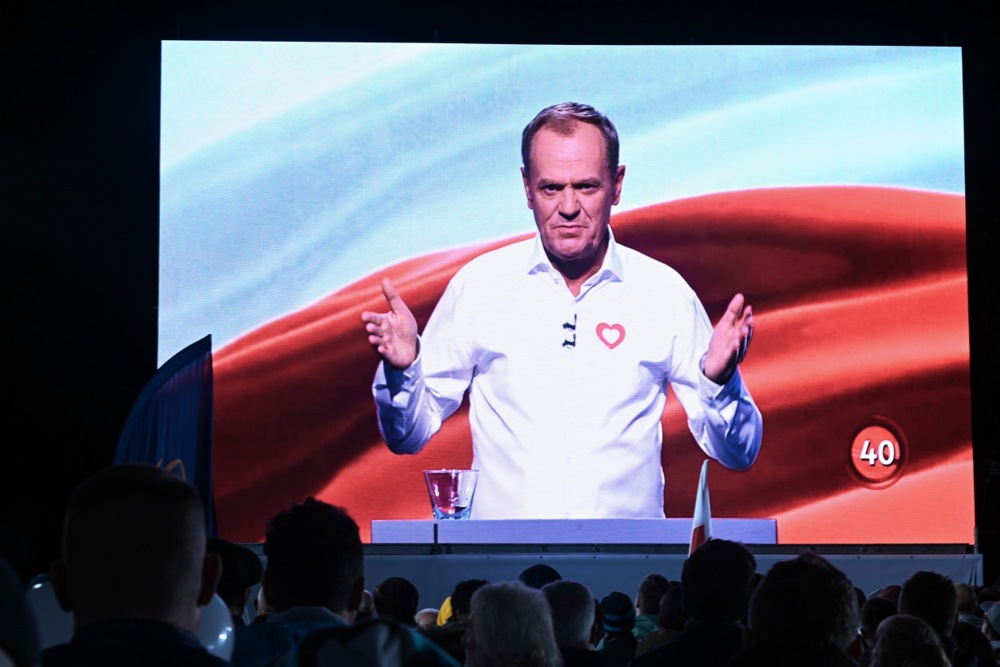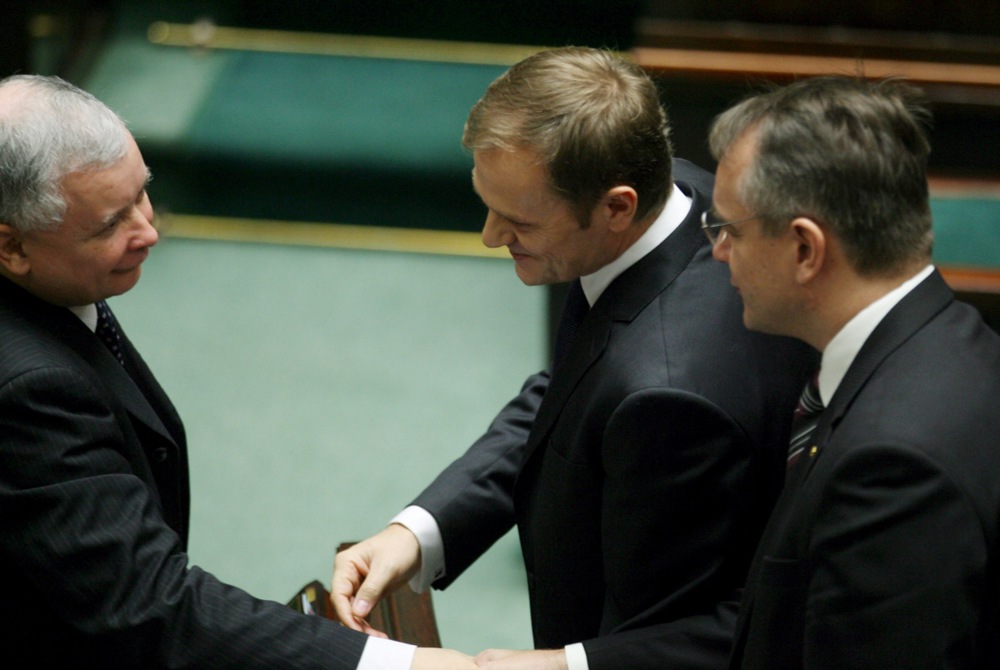Mischief, studied bon mots and narcissistic tirades were a hallmark of this week’s debate before Sunday’s elections in Poland. The candidates seemed more at odds than ever – except on one issue, migration.
Immigration arouses extreme emotions throughout Europe, but in Poland it only ignites discussion, no longer controversy.
Today none of the competing parties advocate open borders or openly want to help illegal immigrants. Even the radical Leftist Green party does not advocate dismantling the wall on the Polish border with Belarus. On the contrary, all parties promise to preserve it; the main opposition party goes the furthest, promising to expand the wall and make it impenetrable.
Even the part of the opposition that refrains from criticising the European Commission’s Migration Pact still insists that Poland cannot under any circumstances be burdened with a solidarity obligation to take in “illegals from Africa”. How did it happen that Polish political elites approach the issue of migration so radically differently from those of Western Europe?
Over the past 20 months, Poles have observed two dramatically different migration phenomena and learnt lessons that Western Europe hasn’t yet.
The first lesson involved refugees from Ukraine, the second pertained to a migrant attack on the Polish border. The attack was thwarted thanks to the government’s determination and overwhelming public pressure.
Ukrainian migration has been a great success, thanks to the government and the enormous determination of the entire nation. Nearly 6 million Ukrainians have passed through Poland, some two million of whom have stayed for the long term. Throughout this period there has not been a single serious incident between Poles and Ukrainians.
What is more, 80 per cent of adult Ukrainians have taken full time jobs in Poland, pay taxes, rent or buy apartments, and statistically come into conflict with the law less often than Polish citizens. All this has been done without a single refugee camp, without separate zones for migrants, without nursing homes, or special schools for Ukrainian children.
The Polish experience with refugees is in drastic contrast to a European migration policy that disregards traditional cultural affinities and ties. Throughout the history of humanity Christians helped Christians, nations helped friendly nations, defenders of market freedoms and civil liberties helped those who adhered to Western values or those who wanted to claim them as their own.
A quarter-century of failed attempts to integrate migrants in Western Europe says less about the migrants and more about Western societies that did not have an attractive value system to offer migrants. These Western European societies had nothing to help newcomers integrate; they had nothing that even remotely resembles the experiences of Americans or even the British.
Multiculturalism is a fantastic concept for anyone wanting to hold music festivals or have new culinary experiences, but multiculturalism as a state-building instrument, disconnected from shared values, is asking for disaster. It is a denial of all natural reflexes and historical experiences of human solidarity.
The Polish generosity and opening of private homes to stranglers can easily be explained by cultural proximity and shared historical experience. These are a condition for successful integration.
In addition to Ukrainians and Belarusians (another million migrants), Poland is home to more than 100,000 people of Vietnamese descent and another 100,000 of Indian origin. While spiritual community is harder to come by here, the coexistence and ability to integrate those nations in Poland could be a model for almost any Western country.
The first thing that differentiates Poland from the policies of other Western countries is the lack of refugee camps and the low level of social benefits. Refugees in Poland are offered the same benefits as Polish unemployed – low enough to encourage anyone who comes to Poland to look for work as quickly as possible. This is one reason why Poland today has the lowest unemployment rate in Europe (2.7 per cent) and at the same time the highest employment rate among immigrants.
Poland has a negligible deportation rate, incomparably lower than Germany or Sweden. Simply put, those who ended up here and hoped for a comfortable life at the state’s expense are themselves leaving Poland quickly. This one thing in Poland will not change – regardless of who wins the elections on Sunday.





Poland’s economy has been a remarkable and underreported success story over the last 30 years – now both main parties appear ready to squander it